DNA DAY 2010: What, me worry about my DNA?
Of course, everyone asks me what I think about National DNA Day, to which I usually reply, “Every day is DNA Day at the DNA Learning Center.”
DNA is business as usual for me and legions of genetic researchers and counselors, but its also becoming business as usual for a lot of average people who are interested in their health or genealogy.
People also often ask me how I feel about all the personal DNA data that is becoming available. To which I usually reply, “I’d be a lot more concerned about losing a credit card or my social security number than having someone look at my DNA.”
An amazing amount of personal DNA information is becoming affordable to the interested person willing to provide a saliva sample by mail. With the tag line “genetics just got personal,” the company called 23 and Me will provide a sophisticated scan of DNA extracted from saliva for less than $500. The company uses research-grade methods to scan more than 600,000 DNA variations to provide risk information about 150 diseases and health-related traits – as well as genetic ancestry. Several other companies will do a similar analysis at a competitive price. So far, only several tens of thousands of people have actually taken these companies up on their offer of a (relatively) cheap gene scan, messing up their business plans.
It may be that people are holding out to get the whole ball of wax. DNA sequencing is becoming so inexpensive – forget the gene scan – it is becoming trivial to determine a person’s entire DNA code, or genome. To date, whole genome sequences have been published for only about 20 humans, but the 1,000 Genomes Project will increase that number 50-fold. We are only a year or two away from the day when an entire human genome sequence can be generated a cost of $1,000 – the price of a middling refrigerator.
Ethicists, who tend to be people who worry a lot, have done a lot of worrying about the consequences of such genetic knowledge. On a personal level, will a gene scan take on the aspect of genetic tarot, predicting the future course of our lives? What will it be like when we have a precise catalog of all the good, bad, and middling genes—and the wherewithal to determine who has which? In the face of such knowledge, will society continue to acquiesce to those who prefer to let nature take its course or will we gravitate toward a prescribed definition of the “right” genetic stuff? Heavy stuff for sure if you or your family is facing a life-threatening disease or if you think hard about the sort of genetically stratified world envisioned in Brave New World, GATTACA, or The Island.
These scenarios aside, the truth is that, for most people, all this DNA data may be more banal than anyone could ever have imagined. (What, no ethical dilemma?) The original human genome sequence was a composite from several anonymous individuals, for which an extensive informed consent protocol had been followed. However, on becoming the first known individual to have his entire genome sequenced, Nobel Laureate James D. Watson promptly released it all online – with the exception of the ApoE gene that estimates his risk of Alzheimer’s disease. Watson’s sequence has been available for public examination since 2007, with no ill effect to him.
About 400 letters of my genetic code has been in an anonymous online database for several years now, and it hasn’t caused me any grief either. We have the same DNA sequences from about 50,000 students stored in the same anonymous database, and they haven’t caused any alarm. At least I haven’t gotten a single phone call from an irate parent in the 10 years since we started putting the sequences online.
That doesn’t mean we should be cavalier about what we do with our personal health information, including certain DNA data. But I think we’re pretty well covered by the Genetic Nondiscrimination Act of 2008, which prohibits insurance companies or employers from using personal genetic information against us. Besides, there’s just so much DNA data becoming available, no one has time to look at it all – any more than anyone has enough time to keep up with their emails. There’s just too much stuff in cyberspace.
So, I’m not being flippant when I say that I’m not very worried about the proliferation of DNA data. It’s only that there are plenty of other types of data that are more readily available and can hurt us more directly.
That’s why I always carry my wallet in my front pocket.
| Print article | This entry was posted by Susan Lauter on April 29, 2010 at 10:10 am, and is filed under Eugenics Archive. Follow any responses to this post through RSS 2.0. You can skip to the end and leave a response. Pinging is currently not allowed. |

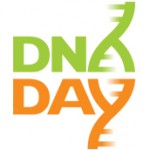
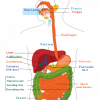

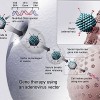
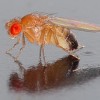
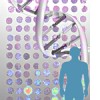

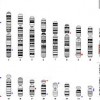
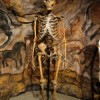
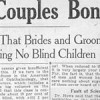

about 13 years ago
How would I go about getting my DNA tested? Being an adopted child, we have exhausted legal alleys to find out my family’s medical history.
about 13 years ago
Hi Traci, you should check this website out http://www.23andme.com/ – just might be what you’re looking for.